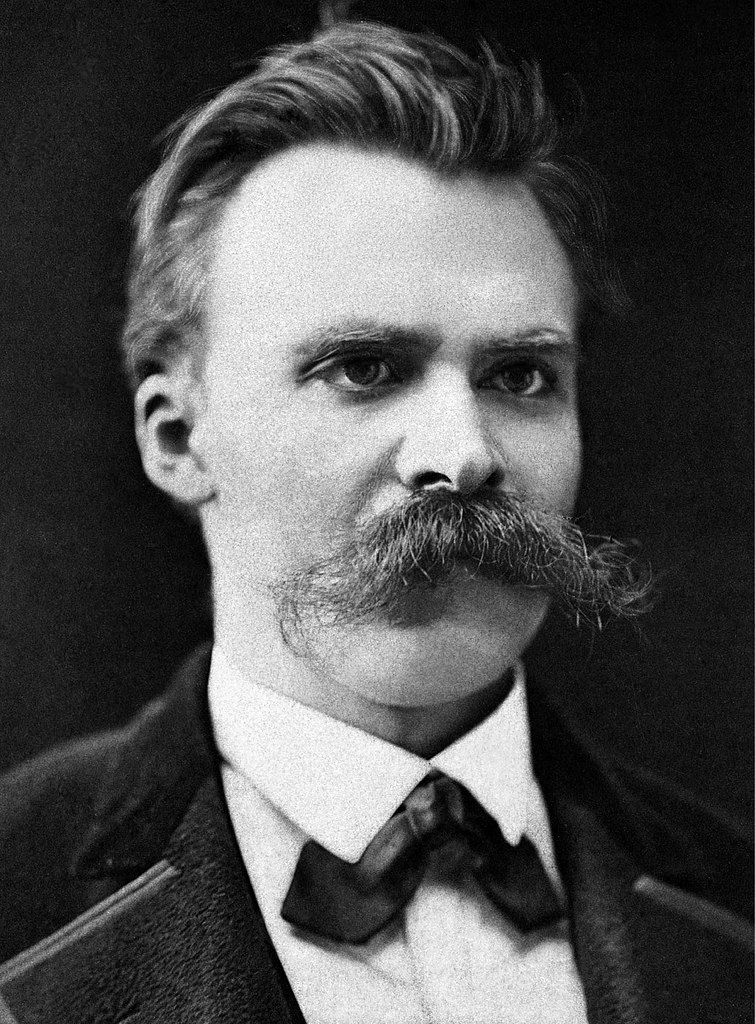Friedrich Nietzsche | |
|---|---|
 | |
| Born | 15 October 1844 Röcken, Saxony, Prussia |
| Died | 25 August 1900 (aged 55) Weimar, German Empire |
| School tradition | Atheism Materialism Metaphysics |
| Nationality | German |
Friedrich Wilhelm Nietzsche (15 October 1844 – 25 August 1900) was a German philosopher, prose poet, cultural critic, philologist and a composer who was notable for exerting a profound influence in contemporary philosophy. His writing spans philosophical polemics, poetry cultural criticism, and fiction that has a fondness of displays aphorisms and irony.
The prominent elements of his philosophy included his radical critique of truth in favor of perspectivism; a genealogical critique of religion and Christian morality and a related theory of the master-slave morality; the aesthetic affirmation of life in response to both the death of God and the profound crisis of nihilism; the notion of Apollonian and Dionysian forces and a characterization of the human subject as the expression of competing wills that are collectively understood as the will of power. In his later novels, he was preoccupied with the creative powers of the individual to overcome cultural and creative mores in pursuit of new values and aesthetic health.
His bodies of work touched a wide range of topics that included art, philology, history, music, religion, tragedy, culture and science. He drew inspiration from Greek tragedy as well as figures that included Zoroaster, Arthur Schopenhauer, Ralph Waldo Emerson, Richard Wagner as well as Johan Wolfgang von Goethe.
He rejected the existence of a God in favor of a supposed superhuman (Übermensch) a concept that was used by the National Socialist German Workers' Party to murder numerous Untermensch (or subhuman) that included Jews, Poles, Slavs and other "races" the Nazis considered inferior.[1]
By many accounts, while Nietzsche himself coined the terms Übermensch and Untermensch, he did not mean them literally and only as an allegory. His sister Elizabeth, who survived him by 35 years, was ostensibly the one who rewrote parts of Nietzsche's writings to fit the Nazi ideology. This version of events, however, is still being discussed in Marxist circles, with many pointing to Nietzsche's writings as always containing a kernel of proto-fascism.
References
- ↑ Ishay Landa (2023-02-08). "Aroma and Shadow: Marx vs. Nietzsche on Religion (2005)" Red Sails. Archived from the original on 2023-02-09. Retrieved 2023-02-17.